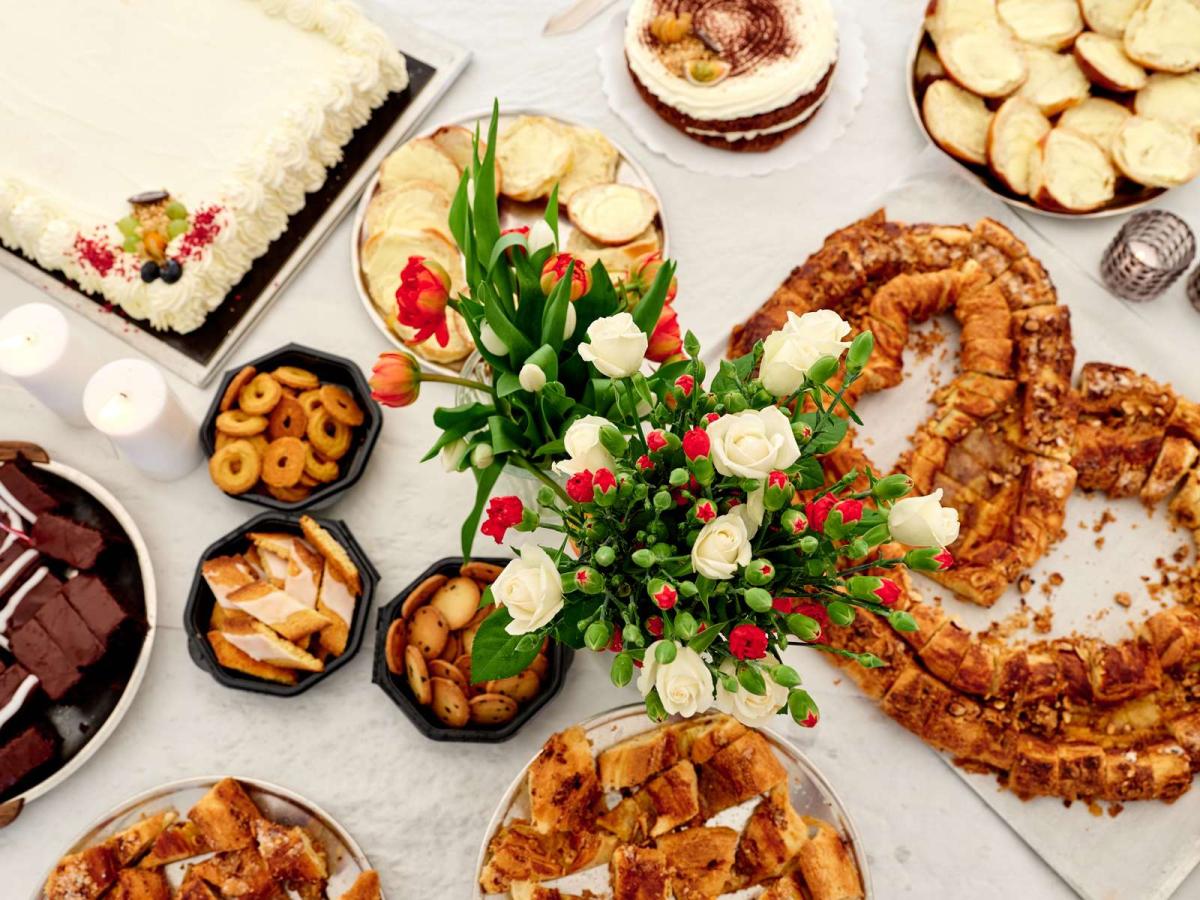31 Mar 2022
Cake Festival: Eat your way around South Jutland
For Danes, the region of South Jutland is synonymous with their elaborate cake traditions. These will be the center of attention on 30 April, where the South Jutland Cake Festival takes over the town of Tønder.

What happens at the festival?
The festival includes a wide variety of competitions, events and, of course, cakes. Some highlights include:
- A special Cake Route through out the town, which allows you to taste a total of 21 cakes
- A competition to make the best version of the famous local cake, Brødtort, which is a layered cake with rye sponges and cream.
- The local shops will compete to create the most beautiful table settings for a Coffee Table.
What is the history behind the Coffee Tables?
The Coffee Table tradition can be traced back to when the South Jutland region was under Prussian rule following the war in 1864. The occupation authorities forbade meetings and patriotic songs put a hold to all liquor license given to the village halls, where the Danes would normally meet for their political debates.
The Danes, however, started meeting for coffee and cake instead. Quietly, the Coffee Table concept became a popular loophole where fellow countrymen could legally meet for political speeches and patriotic songs without the occupants being able to prevent it. The locals would bring their own cakes, and it would often spark competition for whose cakes was the tastiest.
What is a traditional South Jutland Coffee Table?
The tradition says that a real South Jutland Coffee Table should have 21 different types of cakes, although you will also encounter the smaller, and slightly more realistic, version with 14 cakes.
There are naturally many differing options on how to put together the perfect coffee table, but you would often start with the soft cakes, which supposedly create a good base for the rest of the feast. This category includes cakes like kringle and pastries. Then you would go to the dry cakes, including the sponges and tarts. Lastly, you would have the hard cakes, which would be different types of cookies and biscuits.